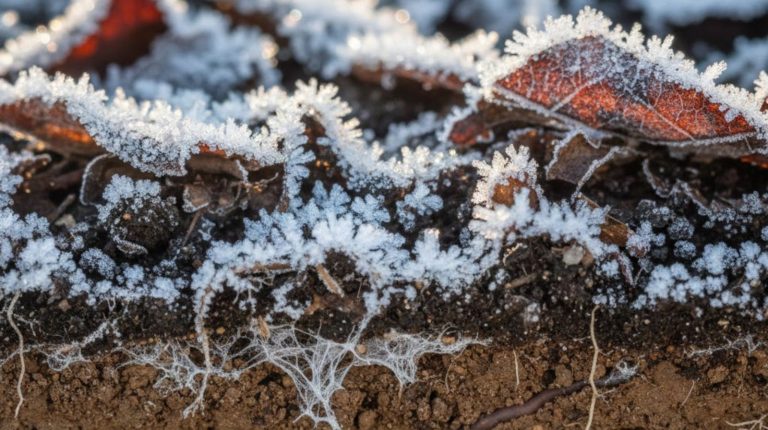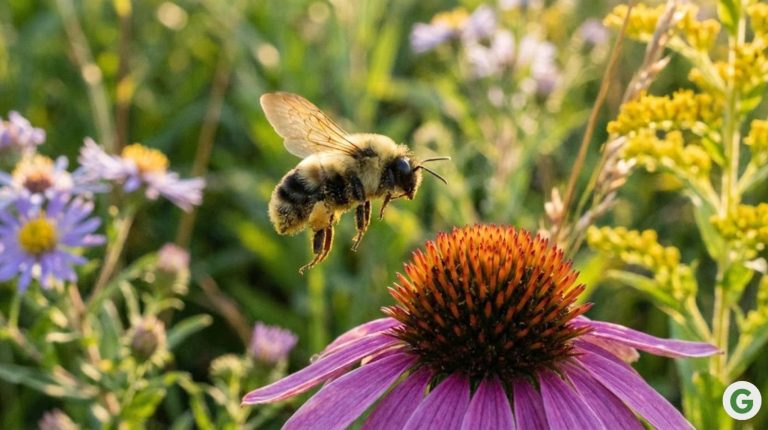As a gardener, you’re not just planting seeds; you’re sowing the future. You understand the importance of living in harmony with nature, and you’re ready to deepen your roots in the eco-friendly community. Here are the 8 best strategies to make your outdoor garden a beacon of sustainability.
By embracing organic practices, you’ll nourish your plants without harsh chemicals. Mulching naturally enriches your soil and conserves water. Cultivating native species invites a sense of belonging among local wildlife. Reducing your lawn space cuts down on water and energy use.
Efficient irrigation systems ensure every drop counts. Growing your own food reduces your carbon footprint. Favoring perennial plants creates long-lasting green spaces. Finally, practicing seed saving connects you to the timeless cycle of growth.
Together, these strategies will not only green your garden but also solidify your place in the eco-conscious community.
Embrace Organic Practices
To maintain your garden’s health and sustainability, focus on organic practices that include using natural fertilizers and avoiding synthetic chemicals. Embracing such methods means you’re not just cultivating plants, but you’re also nurturing a thriving ecosystem beneath the soil.
Employ sustainable fertilizer options like compost, which transforms your kitchen scraps into a nutrient-rich feast for your garden’s roots. This isn’t only a savvy move for your plants’ well-being but also for the planet’s. By using natural compost, you’re participating in a circular economy, cutting down on waste, and reducing your carbon footprint.
Utilize Natural Mulching
Continuing with eco-friendly strategies, you’ll find that applying a layer of natural mulch is one of the most effective ways to enhance your garden’s health and efficiency. Mulch acts as a protective blanket for the soil, significantly reducing evaporation to retain moisture, which is crucial in conserving water, especially in areas with water restrictions.
Not only does mulch keep the soil hydrated, but it also serves as a natural weed barrier. By covering the soil, it limits the sunlight exposure that weeds require to thrive, thereby reducing your garden maintenance efforts.
Sustainable options like grass clippings, shredded bark, and pine needles aren’t just eco-friendly choices; they integrate seamlessly into your garden’s ecosystem. Embrace these practical mulching practices to nurture your garden while fostering a sense of community with nature.
Cultivate Native Species
Building on these sustainable practices, you’ll discover that integrating a variety of native species into your garden not only simplifies maintenance but also fortifies the local ecosystem. Native plants are adapted to your region’s climate and soil, meaning they require less water and are more resistant to pests.
Benefits of Native Plant Species
- Reduced Pesticide Use: Native plants evolved alongside local pests, often developing natural defenses that minimize the need for chemicals.
- Support for Local Wildlife: These plants offer suitable habitats and food sources for native fauna.
- Birds benefit from native berries and seeds.
- Insects rely on specific plants for their life cycles.
- Mammals use native plants for cover and nutrition.
- Water Conservation: They thrive with natural rainfall patterns, lessening the need for irrigation.
- Embrace these native plant species to deepen your connection with the local environment and contribute to a thriving garden community.
Reduce Lawn Size
You’ll significantly lessen your garden’s environmental impact by reducing the size of your lawn. Traditional lawns demand not only copious amounts of water but frequent use of fertilizers and pesticides.
By transitioning to low-maintenance alternatives like ornamental grasses or groundcovers, you’ll find yourself in a community devoted to sustainability. These alternatives require far less upkeep, cutting down the need for electric mowers and altogether sidestepping the harmful cycle of using pesticides.
Moreover, easy-care perennial shrubs offer a visually appealing and eco-friendly substitute, fostering a sense of belonging among environmentally conscious gardeners.
Together, these changes forge a path toward a greener, more inclusive outdoor space with a palpable reduction in resource consumption.
Implement Efficient Irrigation
To maximize your garden’s sustainability, adopt a drip irrigation system that delivers water directly to plant roots, cutting down on waste and ensuring your plants get the moisture they need. Implementing efficient irrigation is a cornerstone of sustainable gardening ideas.
Here’s how you can refine this approach:
- Group plants by water needs
- Herbs together, succulents separately
- Vegetable beds can be zoned based on maturity, as water requirements change
Utilize a rain barrel:
- Capture rainfall for garden use
- Less water is pulled from municipal supplies
Mulching is key:
- Retains moisture, reducing irrigation frequency
- Organic mulches add nutrients as they decompose
These strategies not only conserve water but foster a sense of community through shared sustainable practices.
Establish a Vegetable Garden
With your own vegetable garden, you’re taking a significant step towards eco-friendly living by growing fresh produce right in your backyard. Intensive planting of a variety of vegetables not only maximizes your space but also enhances yields, embodying a truly sustainable vegetable garden.
By sowing cool-weather crops in autumn, you extend the growing season, underpinning self-sufficiency and resilience in your gardening practice.
Moreover, embrace companion planting to naturally thwart pests and bolster the health and productivity of your crops. This method builds a sense of community among your plants, where each species supports the others.
Don’t forget to start a compost pile with your food scraps; this will enrich your soil, completing the cycle of sustainability. And, attract pollinators with successional blooms to keep your garden thriving.
Favor Perennial Plants
Consistently incorporating perennials into your garden not only enhances its resilience but also reduces maintenance and care over time. A sustainable garden includes these steadfast plants for several compelling reasons:
Cost-Effectiveness & Division
- Grow larger annually, offering more coverage
- Can be divided to create additional plants, maximizing your garden’s footprint without extra cost
Adapted to Local Conditions
- Suited to specific USDA Zones, perennials require less intervention
- Less watering and feeding, ideal for those aiming to plant a dry garden
Longevity & Sustainability
- Long-lived varieties provide lasting value
- Contribute to a sustainable, thriving garden ecosystem year after year
Practice Seed Saving
You can bolster your garden’s sustainability and cut costs by saving seeds from this year’s plants for sowing next season. By collecting seed heads from annuals like marigold, sunflower, and morning glory, you engage in eco-friendly gardening that’s both practical and rewarding. This habit ensures your sustainable gardens thrive year after year, reducing the need for new seed purchases.
Practicing seed saving is more than just economical; it’s a step towards self-sufficiency. You’ll preserve the diversity of plants that are already adapted to your garden’s unique conditions. By sowing these saved seeds, you contribute to an environmentally conscious community, fostering a sense of belonging among gardeners who value resilience and continuity in their eco-friendly pursuits.
Conclusion
Juxtapose the fleeting allure of synthetic aids with the enduring benefits of these eco-friendly tactics. You’ll not only foster a vibrant garden but also champion a healthier planet.
Your organic approach nourishes the soil, while native plants thrive with minimal fuss. Shrink your lawn, save water, and watch your garden yield food and biodiversity.
Embrace these strategies; they’re not just practical, they’re a testament to your commitment to sustainable stewardship. Your garden, your legacy.




